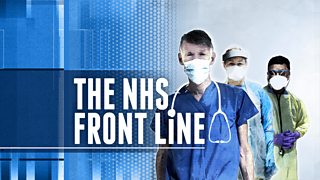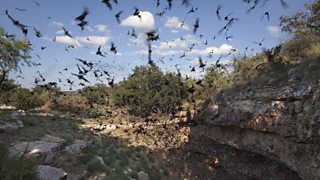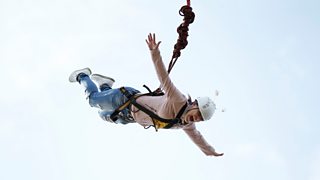Stories from behind the mask
How many of us are truly aware of the sacrifices made, and the predicaments faced, by NHS staff?
File on 4 asked four doctors and nurses to keep diaries of their experiences, charting the journey from the first coronavirus cases to the easing of the lockdown.
-
![]()
Inside Health
Series that demystifies health issues, separating fact from fiction and bringing clarity to conflicting health advice.
Larissa Thorne – intensive care nurse
Larissa is an intensive care nurse at Stoke Mandeville Hospital. She lives in Aylesbury with her husband Graham and her two children, Skye and Tyler. Larissa saw the writing on the wall very early on in the crisis. “I’m frightened to hell when I get to work,” she admits. She’s seen a number of people breaking social distancing and worries how many of them will end up in hospital. “We will get through this…[but] the longer people don’t listen, the longer this is going to go on for.”
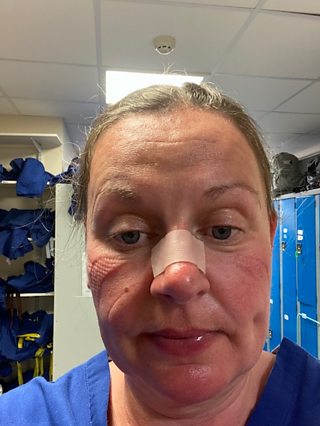
It’s hard for Larissa to shake off the ever-presence of the Covid-19 threat, even when she returns home. “I literally Dettol [disinfectant] my arms, my face, my hair and everything. Even with the PPE [personal protective equipment] on, I still feel quite dirty.” Her sleep is affected too. “I wake up in the night, I suddenly think ‘Covid’, it’s a really bizarre feeling, and hopefully one that I will learn to live with and get over.”
Larissa has the added stress of worrying about her father, Tony, who has terminal cancer. “Being at work does take it off my mind a little, but I always worry that I am going to get that call [at work] about my dad.” She wonders that lockdown came too late to protect Tony, and so, inevitably, some days are tougher than others: “I feel like I can’t give my patients what they should be having, but I do, that’s probably why I am putting too much pressure on myself, because you look after people the way you would want to be looked after, or the way your parents should be looked after - or anybody.”
Towards the end of her diary entries, Larissa endures a horrendous incident at a supermarket where a man deliberately coughs in her face. She’s shaken but undeterred. “I can’t believe people would be so cruel, I want to look after people to the best of my ability, I am very proud of who I work with, such an amazing team who are doing such a sterling job under circumstances, I couldn’t be prouder.”
Rupert Pearse – consultant in intensive care
Rupert Pearse is a consultant in intensive care at the Royal London Hospital. The coronavirus takes an early toll there. Recording at diary entry at the end of March, Pearse says: “of my 17 colleagues in our ICU consultant team, there are only eight of us left now who are able to work, the others either have Covid or are self-isolating with suspected symptoms.”
“We’re all a little bit frightened now, a little bit for ourselves, a little bit for our family, and we’re also getting frightened about the decisions we have to make and how we solve the conundrum of providing a ventilated intensive care bed for everyone that needs it.”
Just over a week later, into early April, Pearse describes a worsening situation. “More patients are dying than expected. Normally, as an intensive care doctor, I would expect to save the lives of two out of every three people, but at the moment, during the pandemic, we seem to be only saving one out of two lives.”
Later that month, Pearse recounts how a dying patient could only say goodbye to their daughter via a video call. This prompted a discussion within the unit about how it could better allow family to be present at the end of life. “Care of dying patients is such an important of what we do and something we take such pride in” Pearse says.
At the end of April, Rupert Pearse ruminated on the idea of any let up for the NHS. “It is really not over for us, at least in my hospital. We expect to be dealing with the problem of the Covid outbreak for at least another six months, and probably another year. The good news is we’ve coped, but only just. In fact at one point it was very close and, as NHS staff, we are just a little bit broken.”
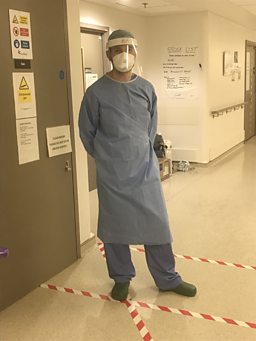
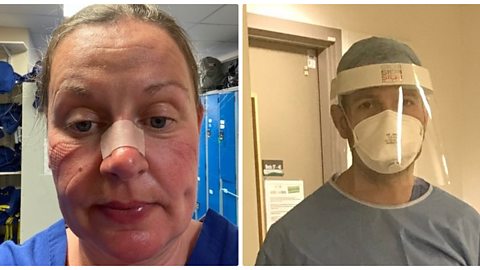
'As NHS staff, we’re just a little bit broken'
Frontline medics fighting coronavirus fear life may never be the same
Maziar Sadri – intensive care consultant
Maziar is an intensive care consultant in London and has to assess who is right for critical care at his hospital, giving him a heavy responsibility for life and death decisions. “The sense of not being able to cure people is always a challenge for somebody in my position,” he says, “but when you face such a mass of patients that you cannot cure, it breaks you into pieces.”
When you face such a mass of patients that you cannot cure, it breaks you into pieces.
As ventilators become more and more in demand, Maziar has an increasing amount of difficult decisions to make. Among the patients that Maziar has to deny treatment to because of underlying conditions is a man in his eighties. “This gentleman had a significant resemblance to my own father, so my discussion with him affected me very, very much,” says Maziar.
Maziar feels like the demand for ventilators will increase and, sadly, his grim assessment is proved correct and the pressure on staff mounts.
His next diary entry comes after working 10 days straight. “It was a really bad day yesterday.
I was getting cardiac arrest calls and medical emergency calls every hour. I had loads of patients that I had to put on ventilators and they were not very old. It seems that every day is getting harder and harder.”
-
![]()
The NHS Front Line
Recordings with frontline staff at Bradford Royal Infirmary, taking you behind the scenes on the wards as COVID-19 patients arrive.

The pressure on resources is proving too much as well. “This is the third consecutive day we don’t have enough visors and goggles to protect ourselves. Our other hospital, which is attached to us, is running out of capacity for oxygen supply and they are going to send a lot of patients to the other site.”
It is very hard when you take the chance of life from some people.
Things get worse before they get better. Maziar finishes shifts signing a lot of ‘Do Not Attempt CPR’ forms and is understandably experiencing low mood. “It is very hard when you take the chance of life from some people.”
When the situation starts to ease, Maziar is understandably drained and exhausted. He knows that it has been hard for everyone, and he’s observed that the NHS staff “always had worries in the back of their mind that they might take a deadly virus home and expose their families to illnesses.”
“I really hope that NHS has some reserves, so that when we are stretched we can cope with the difficult times.”
Anita – midwife and nurse
Anita is a midwife and nurse who lives on the South Coast with her young daughter. As someone who is looking after people with Coronavirus, she’s inevitably worried about the risk of infection and feels that she needs more protection.

“This week I was asked to look after someone with suspected coronavirus,” says Anita.
“We were told that until the swabs come back – which is taking 2-3 days the moment - we’re to use surgical masks and gown and gloves when we’re treating them. But I’m just not convinced, and the thought I could potentially test positive for coronavirus before showing symptoms…and I’m a midwife. I want to work, and I want to work safely, but all I can think is I’ll just keep washing my hands.”
Anita’s anxiety is given a momentary respite thanks to ‘Clap for Carers’. She records one of her diary entries after one of the first instances, before it became a regular Thursday at 8pm fixture. “I didn’t know if people were going to come out, but they have, it really means a lot to me. It really means the world.”
However, Anita is still anxious about the lack of suitable PPE, this is compounded by her having previously lost a baby to an extremely rare infant tumour. “If people tell me the statistics that even if I get coronavirus or my daughter gets coronavirus, we’ll probably be ok, no statistics matter anymore when you have been that one-in-a-million person.”
-
![]()
Inside Health on Coronavirus
Demystifying health issues, separating fact from fiction and bringing clarity to conflicting health advice.
The growing number of NHS staff who are dying from coronavirus (including hospital consultant Abdul Mabud Chowdhury who, shortly before he died, pleaded with the Prime Minister on Facebook for more PPE), adds to the anxiety NHS workers have over PPE. Anita describes one example of how PPE is not stretching. “At handover [of a shift], I was handed one mask. I’ve got to wear it all day, which isn’t a safe way to wear a mask, you are meant to discard it after one patient contact. I don’t think it’s too much to ask for me to feel safe at work.”
A week later, health secretary Matt Hancock suggests NHS workers should use the ‘right amount’ of PPE. Perhaps unsurprisingly, Anita’s reaction is strong. “I feel like screaming, because the guidelines tell me I can’t wear any PPE with patients who are not symptomatic, and yet we know that people can have coronavirus, I could have coronavirus, and not be symptomatic. I could be the person spreading this amongst my hospital.
Listen to Coronavirus: Stories from behind the mask

More from Radio 4
-
![]()
File on 4: Coronavirus: Stories from behind the mask
Candid diaries of doctors and nurses recorded over two months of the coronavirus pandemic.
-
![]()
The Virus Hunters: heroes racing to extinguish new pathogens
The unending quest to track down viruses which could mutate and infect us at any time.
-
![]()
Taking risks: what you need to know
can taking risks ever be a good thing?
-
![]()
Seven tips for staying happy and healthy during a lockdown
Dr Beth Healey specialises in advising on staying happy and healthy in isolation.


